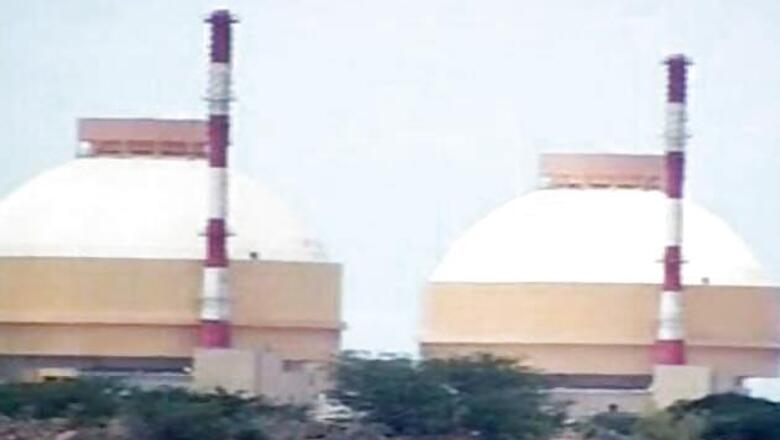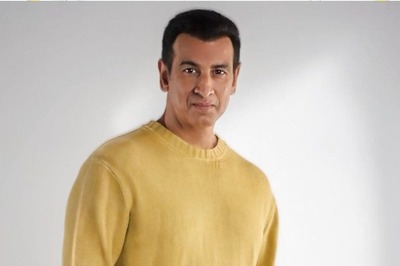
views
New Delhi/Mumbai: India and Russia on Tuesday signed a protocol for Russian funding for units III and IV at the Kudankulam Nuclear Power Project in Tamil Nadu, even as expectations are rising over likely operationalisation of units I and II anytime soon.
The protocol was signed in Moscow, even as India's External Affairs Minister SM Krishna and Russian Deputy Prime Minister Dmitry Rogozin discussed at their bilateral talks the contours of a final bilateral agreement for fullfledged Russian help for setting up units III and IV.
Under the protocol, a significant step for which was taken during Prime Minister Manmohan Singh's visit to Moscow in December 2011 for his summit meeting with then Russian President Dmitry Medvedev, Russia will extend export credit amounting to $3.4 billion.
That will be 85 per cent funding of the nuclear projects' works, supplies and services to be provided by Russian companies for Kudankulam III and IV.
Signed by India's Department of Atomic Energy Special Secretary AP Joshi and Russian Deputy Finance Minister SA Storchak, project credit would be repayable in 14 years after the commencement of the work on the two units.
The protocol also has a separate provision for a state export credit of $800 million for financing up to 85 per cent nuclear fuel and control assemblies at a four percent annual interest, according to a DAE statement made in Mumbai.
The estimated cost of units III and IV is Rs 32,000 crore ($6.4 billion), of which Rs 17,000 crore ($3.4 billion) will be met through Russian state credits.
Krishna and Rogozin, as part of the inter-session meeting of the India-Russia Inter-Governmental Commission, wanted the final agreement for the Kudankulam III and IV to be signed at the earliest.
"The two sides discussed the final agreement for units III and IV of Kudankulam. The final agreement is still in the works," officials of India's external affairs ministry said here to a question on the nuclear plant, which is facing protests from local anti-nuclear activists over its safety issues.
However, at the official joint press conference after their talks, both Krishna and Rogozin did not say anything about the Kudankulam agreement.
Though the agreement is almost ready, the two sides are still discussing if the nuclear liability law that India enacted in 2010 would be applicable to the new units at Kudankulam.
The units I and II, which are ready for operationalisation, do not attract the liability law as the agreements for them were signed during the time of the erstwhile Soviet Union.
India and Russia cooperate in the field of nuclear energy for the last two decades, with the Kudankulam inter-governmental agreement signed in 1988.
Another agreement was also signed in 2008, envisaging four more nuclear power units, including financing of construction through Russian state credits.
Local anti-nuclear activists in south Tamil Nadu have been raising the pitch against the two 1,000 MW nuclear reactors over the last couple of years, resulting in the plant missing its deadline for operationalisation last year and the fresh schedule not yet fixed


















Comments
0 comment